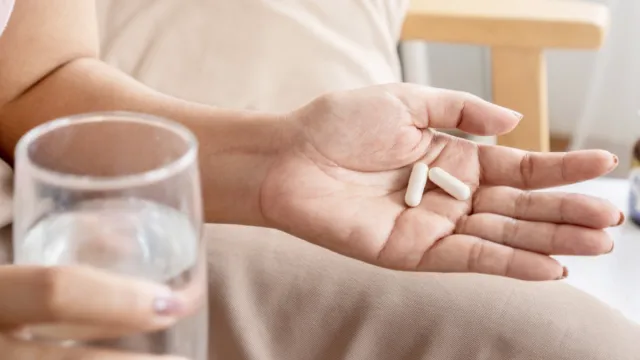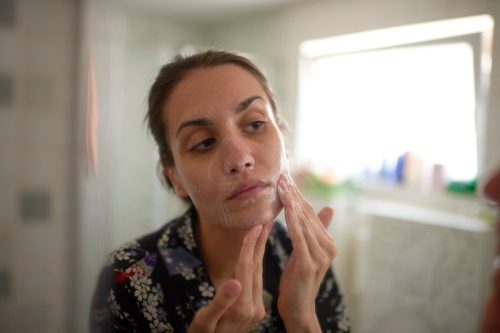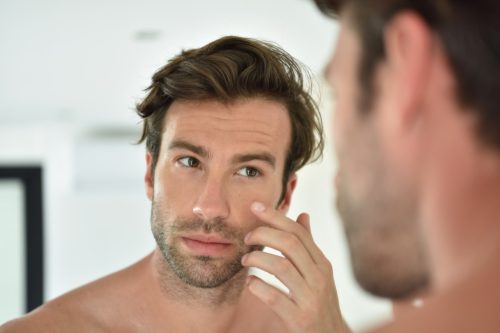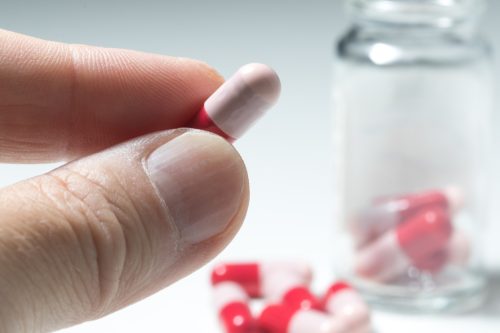The 5 Best Anti-Aging Probiotics, Doctors Say

Over the years, we get older and wiser—but some signs of aging are less desirable than others. We know that different factors like sun exposure and diet can impact our appearance and overall health, which is why so many of us have introduced multi-step skincare routines and daily walks. But if you’re looking for something else to bolster your well-being, you may want to consider anti-aging probiotics.
“Probiotics are beneficial for individuals of all ages; however, they become especially important as we age due to changes in the gut and skin microbiome,” Jennifer Bourgeois, PharmD, pharmacy and health expert at SingleCare, tells Best Life.
As we get older, “there is a natural decline in the diversity and abundance of beneficial bacteria in the gut,” she explains. This can allow harmful bacteria to take over, potentially causing an imbalance. Probiotics can help prevent this, while simultaneously supporting your digestive health, strengthening your immune system, and reducing inflation, according to Bourgeois.
And while it’s great to know that you’re helping your body internally, Paul Charette, master aesthetician and founder of Charette Cosmetics, says that probiotics can even produce “increased skin elasticity, reduced appearance of fine lines, and a more radiant complexion.”
Looking for specific probiotics to add to your wellness routine for real results? Read on for doctors’ top suggestions.
RELATED: 5 Best Anti-Aging Supplements, According to a Doctor.
1
Bifidobacterium longum

Connie Yang, MD, FAAD, a dermatologist at PFRANKMD by Dr. Paul Jarrod Frank, says Bifidobacterium longum is a great place to start when it comes to anti-aging probiotics.
“Bifidobacterium longum has been studied for its anti-inflammatory properties,” Yang tells Best Life. “Chronic inflammation can contribute to various age-related health issues such as cardiovascular disease, neurodegenerative disease, and metabolic syndrome. By addressing inflammation, you can support overall health and well-being as we age.”
A 2023 study published in Aging Cell looked at this specific strain, concluding that Bifidobacterium longum may also improve fracture healing outcomes due to the connections between traumatic bone injuries and the gut microbiota during aging. Considering the research (which was conducted in mice), experts suggest that bone repair in older adults could be accelerated using dietary approaches like this probiotic.
According to Bourgeois, Bifidobacterium strains—as well as some of the Lactobacillus strains listed below—are found in many supplements and fermented foods.
RELATED: Energy Drinks Could Hold the Key to Anti-Aging, New Research Shows.
2
Lactobacillus reuteri

There are a number of Lactobacillus strains worth supplementing with, but Bourgeois says Lactobacillus reuteri is particularly notable.
“This probiotic strain has received attention for its potential anti-aging effects, particularly in supporting bone health and skin health,” she shares. “Studies suggest that Lactobacillus reuteri may enhance calcium absorption and bone density, reducing the risk of osteoporosis in older adults. Additionally, some research indicates that Lactobacillus reuteri supplementation may improve skin hydration, elasticity, and wound healing.”
Illustrating this, a 2020 study published in Molecular and Cellular Biomedical Sciences (MCBS) found that Lactobacillus reuteri supplementation may reduce wrinkle formation and increase type I procollagen production in mice.
In another study, published in 2023 in Aging and Disease, researchers found that Lactobacillus reuteri can be used as a “pro-longevity supplement and a dietary restriction mimetic” (a molecule that benefits health and longevity without a calorie-restrictive diet).
3
Lactobacillus gasseri

Another strain thought to have anti-aging effects is Lactobacillus gasseri.
“Lactobacillus gasseri offers benefits such as reduction of irritable bowel syndrome (IBS) and other similar conditions,” Lauren Thayer, RN at Health Canal, tells Best Life.
This is important because older adults tend to have less “good” bacteria and more “bad” bacteria than younger adults, potentially leading to bowel conditions and gastrointestinal illnesses, Thayer explains.
According to Verywell Health, there isn’t a ton of research on Lactobacillus gasseri, but some studies have suggested that it may help with weight loss.
RELATED: People Who Live to 100 Have These 3 Things in Common, New Research Shows.
4
Lactobacillus plantarum HY7714

Bourgeois also pointed to a study that suggests Lactobacillus plantarum HY7714 has anti-aging effects on the skin.
Per the study, which was published in 2015 in the Journal of Microbiology and Biotechnology (JMB), this strain of Lactobacillus “improves skin hydration and has anti-photoaging effects.” Participants who took the probiotic had a significant reduction in wrinkle depth and an improvement in skin gloss and skin elasticity.
5
Akkermansia muciniphila

Lactobacillus and Bifidobacterium aren’t the only probiotics that can help slow the aging process. Bourgeois also has Akkermansia muciniphila on her list.
“Research suggests that the probiotic Akkermansia muciniphila may benefit skin health by promoting intestinal barrier integrity, reducing inflammation, and exerting antioxidant effects,” she says. “Additionally, Akkermansia muciniphila may regulate lipid metabolism and potentially offer anti-aging effects by supporting cellular health.”
She also points to a 2019 study published in Microbial Biotechnology, which had “promising” results. Still, she says more research is needed “to fully understand [Akkermansia muciniphila‘s] mechanisms and effectiveness for skin health.”
Best Life offers the most up-to-date information from top experts, new research, and health agencies, but our content is not meant to be a substitute for professional guidance. When it comes to the medication you’re taking or any other health questions you have, always consult your healthcare provider directly.
- Source: Aging Cell: Bifidobacterium longum supplementation improves age-related delays in fracture repair
- Source: MCBS: Effect of Lactobacillus reuteri Administration on Wrinkle Formation and Type I Procollagen Levels in UVB-Exposed Male Balb/c Mice (Mus musculus)
- Source: Aging and Disease: Probiotic Limosilactobacillus Reuteri (Lactobacillus Reuteri) Extends the Lifespan of Drosophila Melanogaster through Insulin/IGF-1 Signaling
- Source: JMB: Clinical Evidence of Effects of Lactobacillus plantarum HY7714 on Skin Aging: A Randomized, Double Blind, Placebo-Controlled Study